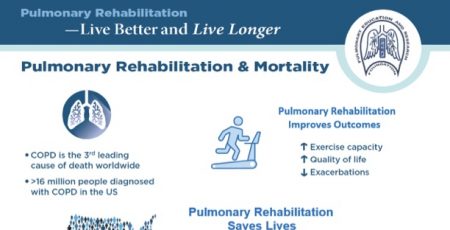
07 Jan Companion Conditions for COPD Patients [VIDEO]
In this video, part of a continuing series produced by Medscape, Dr. Laura Feemster of the University of Washington discusses the risks of comorbidities, or companion diseases, in patients with COPD. These include coronary artery disease, congestive heart failure, arrhythmia (irregular heartbeat), obesity, diabetes, depression, and obstructive sleep apnea. Even if you have mild COPD, you have an increased risk of death from these other conditions, notes Dr. David Au, also of the University of Washington. Taking actions to reduce the risks of these other diseases can improve the quality of life and extend the life expectancy of the COPD patient.
The most common comorbidity among COPD patients is obesity; 33% of COPD patients are classified as overweight, and an additional 33% are obese. This complicates therapy, because overweight and obese patients get short of breath more easily, tend to be deconditioned (reduced fitness or muscle tone), and may even have trouble walking.
On average, COPD patients take 6 to 7 medications daily for both their COPD symptoms and their related diseases, complicating treatment further simply because management of medications is a burden for the patient, and interactions among medications can cause additional health problems.
When a COPD patient visits his or her health care professional, says Dr. Au, COPD tends to command most of the attention because it’s the highest priority health concern, so diabetes, obesity, exercise, mental health status, and fitness aren’t addressed as thoroughly even though they’re important for the patient’s comfort, quality of life, and overall health and life expectancy. It’s important that the medical health care professional works together with the patient to explore these other factors and seeks to improve them for the health and well-being of the patient.
Click the image below to watch the video:






No Comments